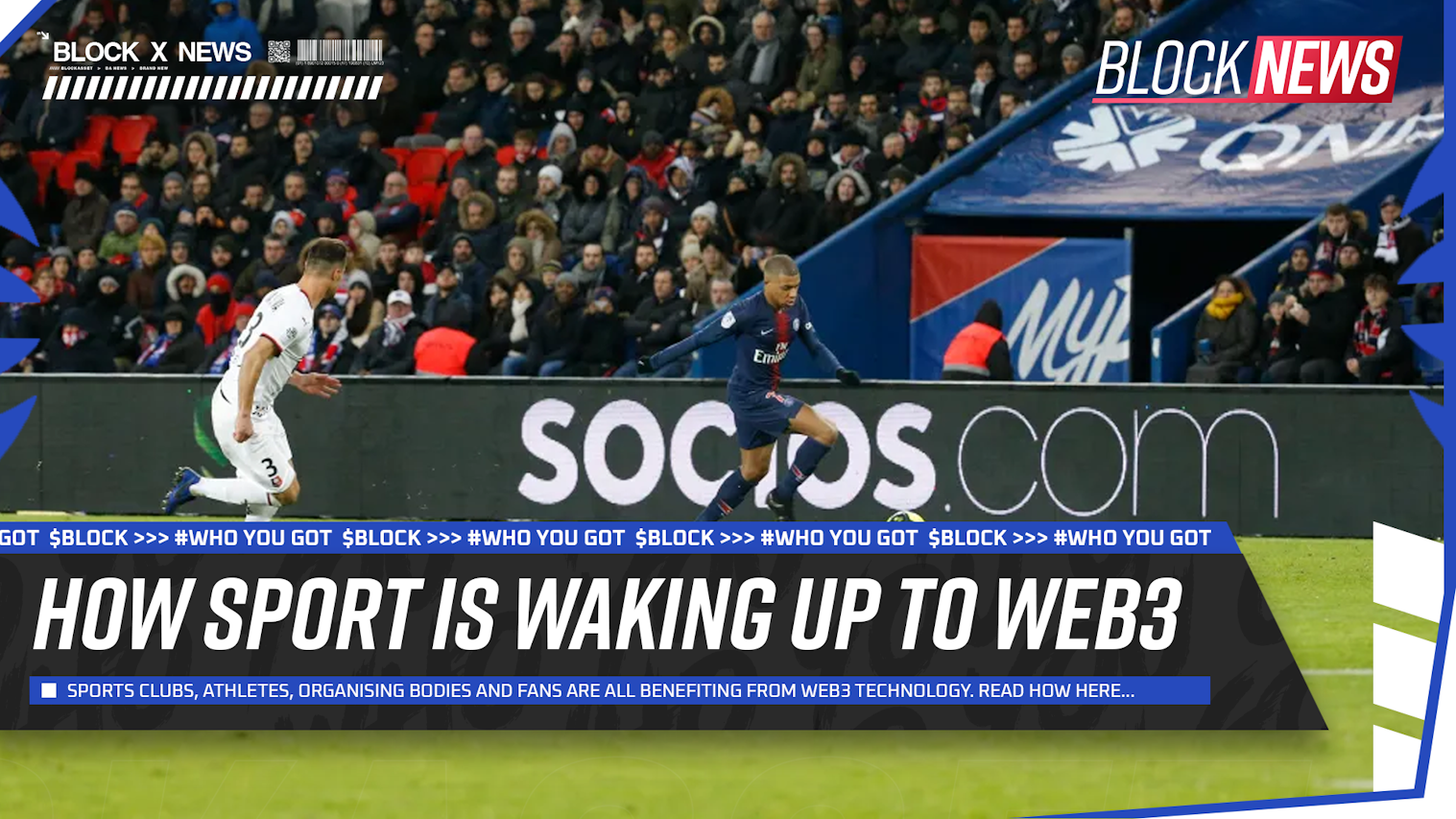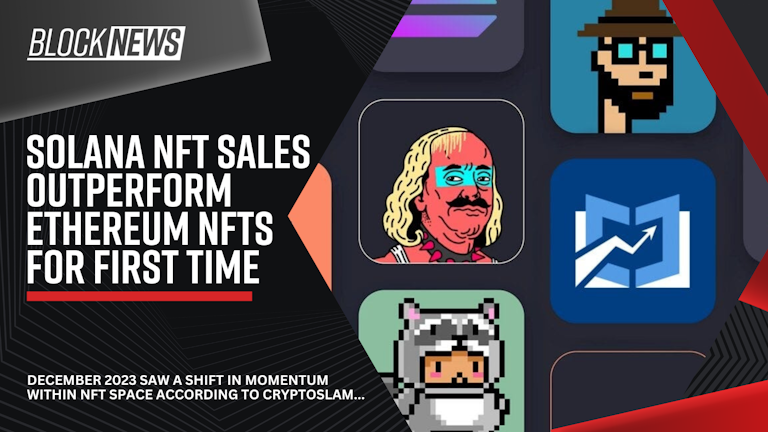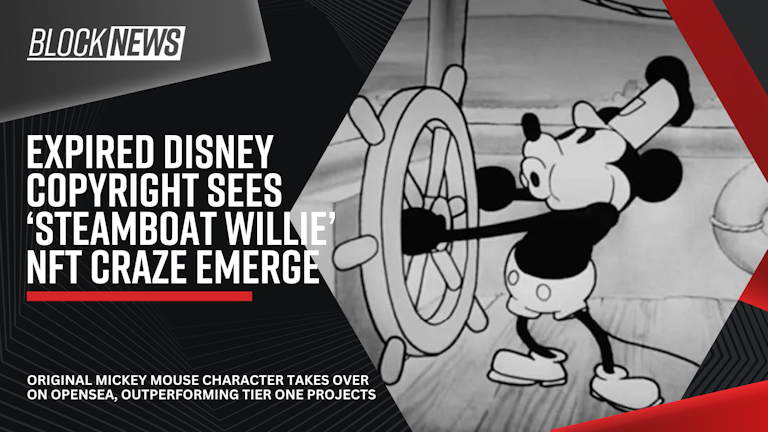How sport is waking up to Web3

Paris Saint-Germain's Kylian Mbappe in action besides a Socios.com LED board in Paris.
Sport, more than most other aspects of culture, seems to cling onto traditions with a firm grip.
Whether it’s ‘Abide With Me’ sang before the FA Cup final, American Football on Thanksgiving, wearing whites at Wimbledon or The Masters’ green jacket, we, sports fans, respect and pay tribute to sporting traditions.
However, as technology advances, sporting traditions are being challenged. Purists still foam at the mouth when ‘VAR’ is mentioned, and football fans were frothing again at five subs… Yet, the biggest transformation to sport as we know it is happening right before our eyes.
What was the first fan token partnership in the Premier League?
When West Ham United proudly announced Socios.com as a Club Partner in 2020, they became the first Premier League club to enter such an agreement. However, the proverbial cat was unleashed on the pigeons. Cue outrage, fan protests and… eventually, the cat crawled back with its tail firmly between its legs.
Under pressure from football fan groups, West Ham United decided to terminate its partnership with fan engagement platform Socios.com. Fast-forward three years, and Socios.com is home to the largest online community of sports fans in the world, with more than 150 partner clubs spanning 25 countries, with FIFA World Cup winner – and arguably the greatest player to play the game – Lionel Messi, as an ambassador.
Now, as a West Ham fan myself, I appreciate that 2020 was probably the wrong time to approach the wrong fanbase about embracing Web3 technology. Still finding our feet at a makeshift athletics stadium after 113 years at the glorious Upton Park, and having our beloved crest ripped from the club’s famous claret and blue jerseys and replaced with a commercially appealing ‘London’ badge, us West Ham fans – more than ever – were wounded animals.
Socios arrived promising diplomacy and democracy for football fans. Which after consecutive disastrous ownership regimes, appealed well enough. However, the messaging at the time was interpreted as “have a say, at a cost”.
I’d like to think that I’m a bit of a purist at heart. And, the idea of having a say at what happens at my club coming at a price, probably would have riled me back then. But the notion of Socios.com, and what the platform offers, was simply lost in translation.
Until Socios.com came along, I could buy a season ticket, and whatever else the club dared to flog me. I could channel my inner Julian Dicks, and stand there, upon the Bobby Moore Lower, screaming my frustrations into the East London ether… and wake up to the status quo the very next morning. Socios.com threatens to change this.
How can fan tokens revolutionise fan engagement in sport?
Ok, Socios.com is yet to allow fans to decide formations, team selections, signings, next managers or indeed owners… but the environment whereby democratic decisions could be made to guide the direction of a club hadn’t existed, until now.
The idea of fan engagement *offers cuddle to purists reading* is a fairly new concept. But, in a world where football clubs are owned by states, the Premier League’s global broadcast rights are worth $12.8bn and transfer fees and wages are increasing on the daily, we’d be fools to think that our support isn’t worth anything to clubs.
Every time we visit our favourite club’s website, engage with our club’s social media channels, walk through the turnstiles, buy a half-time pint, have a bet through a club partner… as football fans, we’re creating a value profile. Even when we watch an away game on the TV and take in the commercials at half-time, we’re contributing.
At the time of writing, arguably the most valuable sports entity in the world (and with so many Liverpool fans at Blockasset HQ, this isn’t going to make me popular), Manchester United, is under the hammer to the highest bidder.
As a football fan, you are of value to the person buying the club. Owners get a return on investment consisting of broadcast revenue, sponsorship, ticket sales, hospitality, merchandise and licensing. If fans stopped watching games on tv, broadcast and sponsorship revenues would fall. Likewise, if fans stopped attending matches in the stadium, ticketing, hospitality, merchandise and food and beverage revenue would suffer. Essentially, fans are critical to the sustainability of clubs.
For too long, the value of fans has not been reciprocated. Whether it’s massively inconvenient kick-off times for away matches, or rescheduled fixtures to suit broadcast schedules, up to four new kits released each season or vastly over-priced food and beverages at games. Fan tokens provide an opportunity to offer fans added-value for their loyalty. This could be something as simple as exclusive content, votes on certain club decisions or even priority windows for tickets or merchandise.
Another factor of fan tokenisation that is often overlooked, is the opportunity for overseas fans to feel a part of their club. The Premier League, for example, is enjoyed by 4.7 billion fans, across 643 million homes within more than 180 countries. Until now, the only engagement for fans would be one-dimensional engagement with club social media channels. Through fan tokens, these supporters can be rewarded with enhanced opportunities to engage with their favourite clubs.
How fan tokens can help diversify club revenue streams
At a time when football finances are under more scrutiny than ever - see recent examples at Juventus and Manchester City - clubs need to diversify their revenue channels. In this case, Web3 technology offers a beacon of light to clubs, when other revenue streams are under threat.
One of the largest contributors to football clubs’ commercial operations in recent times is the gambling industry. However, changing legislation in countries such as Spain and Italy, meaning that gambling advertising is now forbidden, has seen substantial decreases in revenue - particularly for football clubs in Serie A and La Liga. With the UK Gambling Commission currently working with the UK government to review the Gambling Act in the UK, the days of gambling sponsorship in the Premier League and EFL are seemingly numbered.
How do fan tokens work?
Socios.com is slowly – even if not by design - providing a lifeline to clubs. A sustainable system whereby memberships, content, ticketing, merchandise and more can be supported by one platform. By releasing club Fan Tokens, Socios.com is creating a new wave of digital memberships. Finally, a membership where you get a say in what your favourite club does.
On a very basic level, Socios.com has created a value exchange that holds benefits for everyone involved. Fans buy fan tokens to access rewards and privileges that their favourite club provide via the Socios.com platform. Fans have the flexibility to trade/hold/sell their tokens, too. Clubs benefit from a percentage of fan token sales (and in some cases, Socios.com have paid their partners a partnership fee). Finally, Socios.com generates income through transaction fees.
Until now, Socios.com has made history by giving sports fans a say in the designs of kits, team buses, corner flags and the playlists for you to enjoy in the stadium – and so much more. But, the ‘blue-sky’ thinkers among you will recognise a trend here…
Having influenced the decision-making at some of the world’s largest clubs, including FC Barcelona, Manchester City, PSG, Juventus, AC Milan, River Plate and Benfica and even with organisations such as UEFA, the Argentinian FA and the Portuguese FA, Socios.com is now at the forefront of the most exciting shift in fan experience in history.
And, they’re not alone. Binance has entered the fan token space, with partners including Santos, Porto and Lazio. Meanwhile, Bitci have partnered with clubs such as Wolves, Rangers and Real Betis in the past.
Socios.com is the undisputed king of fan tokens, though. And, their offering has now entered other sports such as MMA (PFL, UFC), F1 (Alfa Romeo, Aston Martin), NASCAR (Roush Fenway Racing), Basketball (various NBA franchises), Tennis (Davis Cup), American Football (various NFL franchises), Ice Hockey (various NHL franchises) and Rugby Union.
How are different sports embracing Web3 technology?
Aside from fan tokens, Web3 technology has also been embraced successfully by rightsholders such as the NBA (NBA Topshot with Dapper Labs), the Premier League (Sorare) and MLB (with Candy Digital) when it comes to NFTs, completely revolutionising daily fantasy sports and brining a fresh injection of relevance to the sport collectibles market.
Sport is embracing Web3. And, slowly-but-surely, fans are too.
How can athletes and fans benefit from athlete tokens?
Blockasset is taking things one step further, by enabling individual athletes and their fans to benefit from Web3 technology.
Take an up-and-coming boxer for example. The weekly wage simply doesn’t exist for them. As a boxer coming through, you’re reliant on sponsors and fight fees. With Blockasset’s athlete token platform, fighters can generate revenue from their engagement with their fans, and fans can enjoy direct access to their heroes.
Eventually, brands will be able to use Blockasset’s platform to source athletes for endorsement deals, too. Removing reliance on third-parties and agencies, and negating commission payments and fees.
As with most new technologies, there is often a resistance or reluctance - especially within sport. However, tokenisation in sport can clearly provide a win-win relationship for fans, clubs and athletes alike.
Disclaimer - This article was written by Shaun Simmonds, Digital Marketing Manager at Blockasset, and does not necessarily represent the views or values of Blockasset


